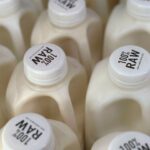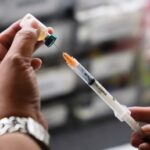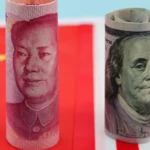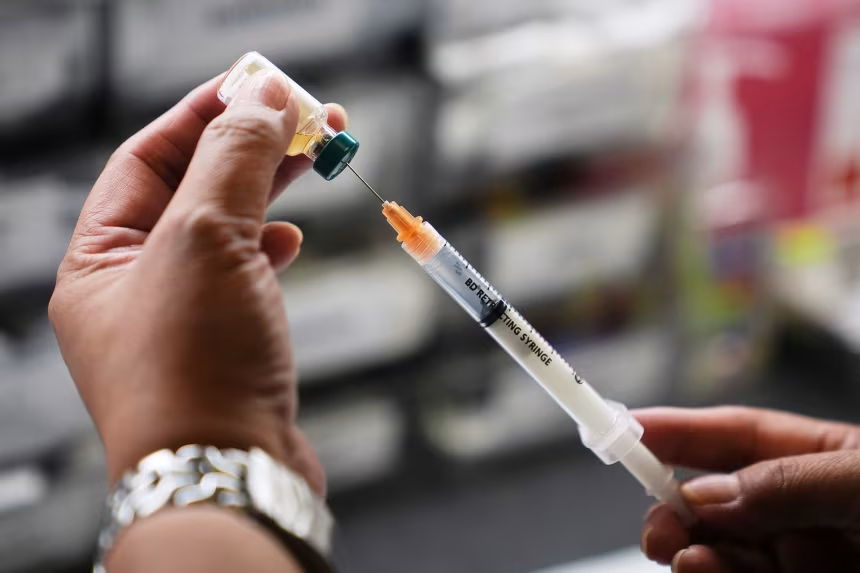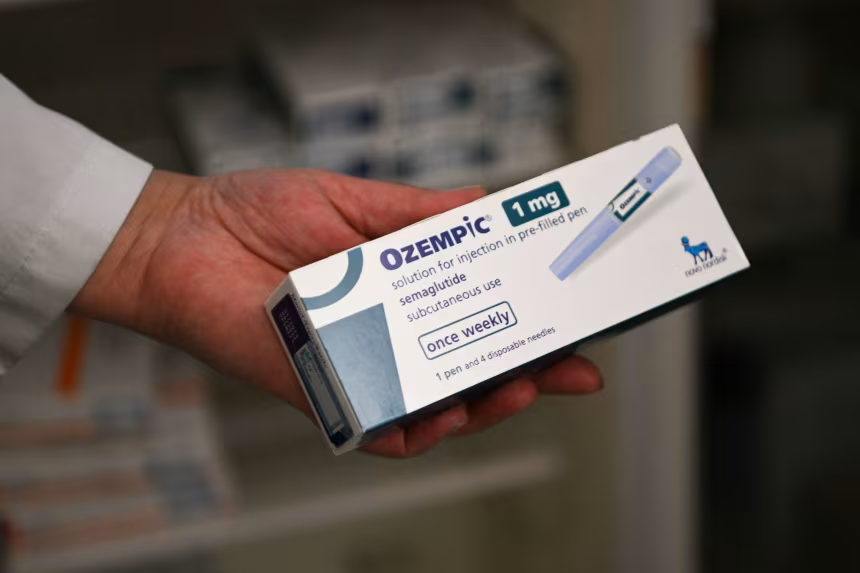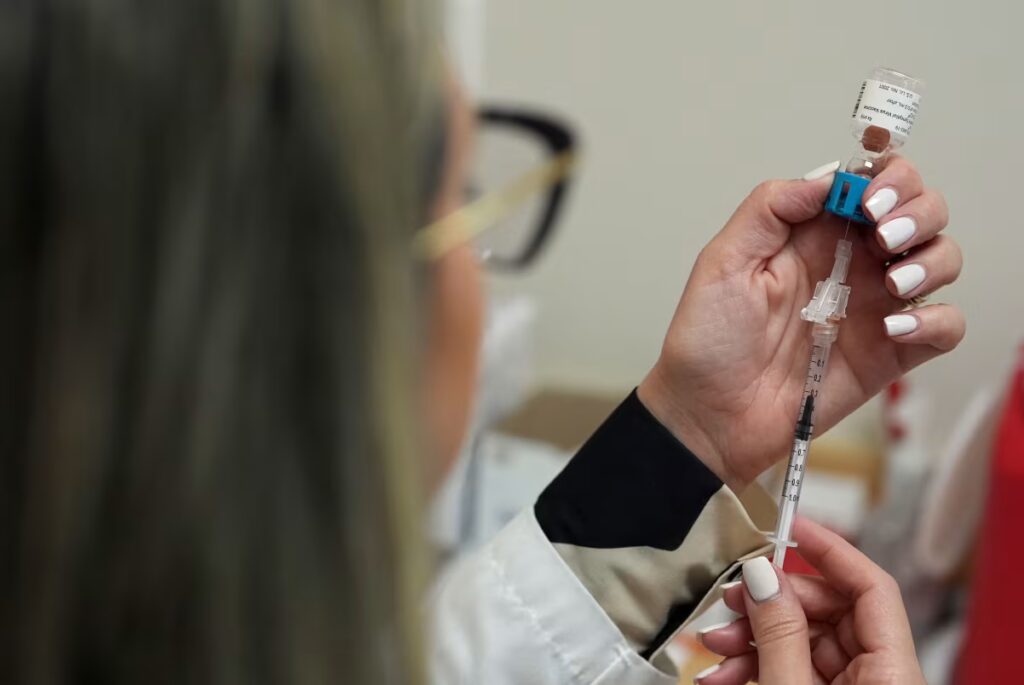Why American Health Values Are Shifting: ‘Natural’ Trends, Mistrust, and the Power of Influencers
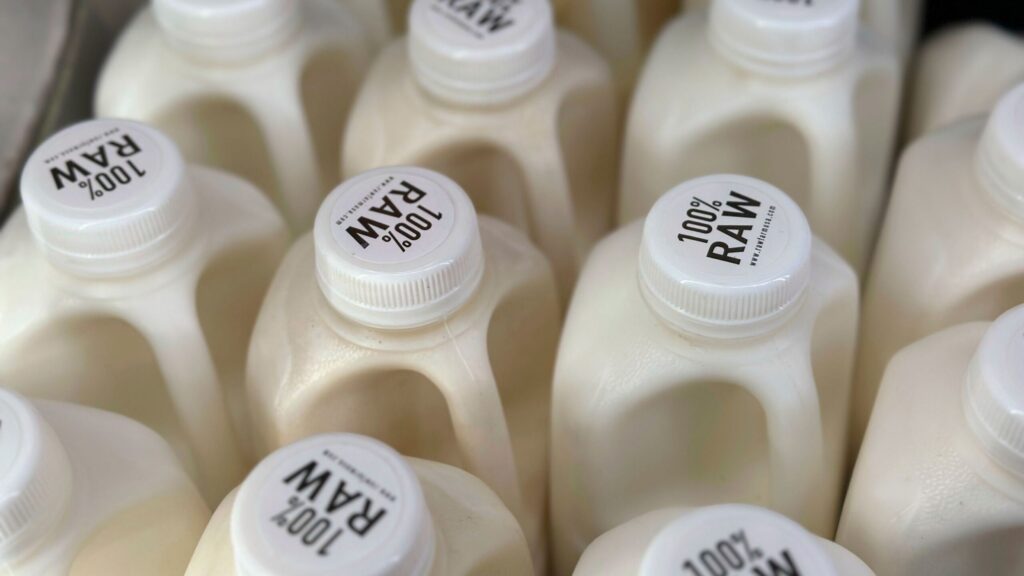
Americans’ steadfast dedication to their beliefs can be a good thing, but it can also go too far, Dr. Jessica Steier says – like when adults yell at Girl Scouts that the cookies they’re selling are “poison.”
Steier, a science misinformation expert, says a mom recently told her that her daughter was berated by natural-foods fanatics while selling Toffee-tastics and Thin Mints outside a local grocery store.
“Just because things are ‘natural’ doesn’t make them safe or even good for you,” Steier said – something she often reminds her audience on her podcast, “Unbiased Science.”
These types of incidents are signs of growing shifts in the way people in the US think of their health, and it has little to do with what their doctors tell them.
Extreme “natural” diet trends like drinking raw milk or raw meat smoothies or eating a stick of butter every day seem to be moving from the fringe talk of the Tradwives trend and the manosphere, more toward the mainstream.
Dr. Kyla Lara-Breitinger, a cardiologist at the Mayo Clinic who specializes in cardiovascular disease prevention, said she thought she’d heard of most fad diets. But then the CEO of a major company told her he’s on the “lion diet,” which focuses on salt, water and meat from ruminants such as cows and deer – no fruits or vegetables allowed.
“It’s just kind of bizarre what’s happening,” Lara-Breitinger said. “I get a lot of the ‘worried well’ who take a ton of supplements, who follow certain influencers who tell them they have to eat everything raw – raw meat, raw eggs – because they believe it’s healthier, less processed and more natural.”
Lara-Breitinger said her patients who are adhering to ketogenic, carnivore or paleo diets, in which they eat no grains, tell her their inflammatory markers have improved.
“That’s great, but then I ask, ‘what’s your LDL cholesterol? How is that affecting your coronary arteries?’ ” Lara-Breitinger said. “That’s much more likely to kill you prematurely.”
Studies show that Americans have long preferred products with a “natural” claim. Surveys consistently show that shoppers are willing to pay significantly more for products with a natural label. And the multibillion-dollar global “free-from” food market is expected to grow exponentially over the next few years.
But as more people slide further down a slippery slope of wellness trends and hear more MAHA-type messaging – that says chronic illnesses are on the rise because of ultraprocessed foods, seed oils and even fluoride in drinking water – experts say they may inadvertently embrace more unproven, ineffective and even dangerous alternative health trends, including forgoing long-proven protections like vaccines.
What can be done about it, scientists say, they’re still trying to figure out.

A woman takes a photo of the Make America Healthy Again sign hanging outside the Department of Health and Human Services in Washington, DC, in September. Bill Clark/CQ Roll Call/AP
The religion of food
Food historian Dr. Ken Albala says people have fallen for health fads and diet trends for centuries.
“It’s absolutely perennial,” said Albala, a University of the Pacific professor of history and author of 29 food-themed books.
“There’s always been people who make a claim based on some spurious little piece of logic, and we fall for these things,” he said. “Always.”
Health and diet trends typically follow a pattern, he said. If some people argue that humans should eat a meat-only diet because we have sharp incisors, another group argues that our flat molars indicate we should eat only grains. Both camps attract passionate followers.
“They’ll miss the fact that we have both, so that should suggest something else entirely,” Albala said.
Food fads are not just about feeling better or losing weight. They provide a sense of belonging, a belief in something bigger, and their all-or-nothing dedication – which may prompt someone to yell at Girl Scouts selling cookies – becomes like a religion, Albala said.
“The way religion promises eternal life, these fads promise, ‘All you have to do is follow these simple rules, and then you will be whatever you want: healthier, thinner – you’ll have a better brain, live longer, have more friends,’ ” he said. “Whatever the culture values, that’s what [influencers] sell.
“Like with religion, all one has to do is convert.”
There’s also “a long and colorful history” of alternative health practices specific to the United States, said Adrienne Bitar, an American studies lecturer at Cornell University who specializes in the history and culture of American food and health.
“There’s something uniquely American about it, this real anti-establishment stick-it-to-the-man cowboy mentality,” said Bitar, author of the book “Diet and the Disease of Civilization.”
In the past 20 years, there’s also “rightly directed anger towards health insurance companies and towards the profiteering that comes from ill health in the United States,” which has empowered Americans to find their own way “for good or bad,” she said.
Not to mention, Albala said, “people always want quick fixes.”
Older, sicker and unable to get help
For a few reasons, more Americans need a health fix.
First, American life expectancy is lower than in comparable countries and the population is aging. The number of people 65 and older will more than double over the next 40 years – and ailments typically come along with age.
Second, most Americans have at least one chronic condition, and the numbers are growing. In 2023, nearly 77% of adults in the US had at least one, according to the US Centers for Disease Control and Prevention. In 2013 it was 45%, according to Pew Research Center. Some of the increase is due to better disease detection and people who are living longer with chronic conditions, but there are also more modifiable risk factors such as alcohol use, smoking, physical inactivity and poor nutrition.
Third, if someone is sick, it can be difficult to address. A KFF poll in July found that about a third of adults had skipped or postponed a doctor visit in the previous year because of cost. It’s much worse without insurance: About 75% of the estimated 27.2 million uninsured people in the US said they had skipped needed care. And if ACA subsidies are not approved in ongoing federal budget negotiations, many millions more may soon find themselves in that position.

A shadow is seen across a Medicare card in Portland, Oregon, on June 10, 2024. Jenny Kane/AP
The ‘mistrust period’
Americans who have primary care clinicians put the greatest trust in their advice, according to an August survey by the University of Pennsylvania. That has been consistent for years. But now, more people are questioning the scientists who are creating the research and the government guidance informing their providers’ practice, and it motivates some to seek additional health information elsewhere.
Trust in government health agencies had been falling since before the Covid-19 pandemic, KFF research says. And a June 2025 survey found that the percentage of people with “high trust” in all scientists declined from 58% in 2020 to 36% in 2025.
“People have trusted and mistrusted modern medicine for various reasons over the years,” Albala said. “I think we’re in a mistrust period.”
Mistrust is sometimes earned, psychiatrist Dr. Drew Ramsey said. He points to the opioid epidemic – when pharmaceutical companies reassured doctors that their patients wouldn’t become addicted to painkillers – and says when millions became addicted and hundreds of thousands of people died, it prompted “a very public crisis of faith in academic integrity and research integrity.”
Mistrust can be deserved with food trends too, Albala said. For example, doctors believed companies that said margarine was a healthier alternative to butter, since it was lower in saturated fat and cholesterol. But for a long time, margarine was made with partially hydrogenated oils, which turned into dangerous trans fats.
“Clearly, we’ve been misled before,” Albala said. The trend to more natural health solutions is, in part, “a backlash against trusting science and professionals.”
‘Predatory on multiple levels’
Over the past two decades, a growing number of Americans have turned to the internet, social media and increasingly AI to verify symptoms or learn how to manage chronic conditions. Even when adults aren’t looking for health guidance, an August KFF survey found 72% of those who scroll through social media regularly see messages about weight loss, diet or nutrition.
“It can be so predatory on multiple levels, and it’s in so many people’s algorithms,” Steier said.
Convenient and free, online health information can empower patients to ask their doctors better questions. Online forums give people access to communities whose members understand the struggles of certain conditions and can share advice. But the largely unregulated internet can also open a door to health “misinformation and quackery,” studies show.
And as more Americans turn to “Dr. Google,” they’re getting stuck in a web of unvetted wellness claims promoted by a growing number of health influencers.
Many adults say they remain skeptical about social media health advice, but for digital natives – those in their early-40s and younger – trust is stronger. TikTok, which often spawns dangerous food and health trends, like NyQuil chicken, garlic in the nose, and vabbing is trusted at least “some” of the time by more than half of young users surveyed in June by KFF.
Even if they’re skeptical, people are seeing more unvetted health claims about natural food trends just because of the nature of their viewing habits, said Taylor Agajanian, a researcher finishing up her Ph.D. in communication studies at Northwestern who specializes in the spread of problematic information, including health information, and how it creates harm offline
“I’m 34. I’ve been on the internet my entire life, and even I somehow catch myself scrolling TikTok instead of, in the past, I may have watched TV,” Agajanian said.
On the news, health stories were presumably based on vetted research and advice from doctors. Online, anyone can be an “expert” – and in fact, Agajanian said, health influencers make more money posting as experts even if they’ve never been to medical school.
“So, there’s this ecosystem of people just saying whatever online, but they’re doing so authoritatively enough to convince people they’re correct, and people are being inundated with health information.”
For example, Agajanian notes that there’s “not a trivial amount” of love for raw milk from online influencers.
The CDC warns that raw milk is one of the “riskiest” drinks because it can expose people to deadly diseases like listeria and brucellosis. Last year, scientists even confirmed that bird flu can be found in raw milk. Yet weekly sales spiked nearly 25% over the past year, studies showed.
Part of what makes raw milk more popular is who pushes it. It’s not just dairy farmers and stars like actress Gwyneth Paltrow, Agajanian said. Young, hip influencers talk nonstop about it, she said. And when the message comes from people who look like the reader or who the reader aspires to look like, they may start to think the message is normal and try it themselves.

A woman pours a cup of raw milk for a child during a protest in Chicago. Frank Polich/Reuters
Listening to the spoonies
Online health messages about “natural” food solutions also have a strong appeal to “spoonie” communities, online groups for people with a common chronic illness, pain or disability who don’t always get great answers from their doctors, Agajanian said.
“They don’t feel like they’re being helped or heard, so they will seek out those who say with great authority that they can help,” Agajanian said.
Influencers who promote natural health are popular because of the way they deliver a clear message with empathy.
“The wellness industry serves up easy solutions on a platter and offers very concrete, very black and white actionable steps, but we in the science and medical world know it’s really all gray and nuance,” Steier said. “When we tell people the cause of their pain or chronic condition is multifactorial or there are multiple variables, what do people do with that? It’s not empowering. So the wellness industry steps in and does an incredible job making people think they have so much more control over their health.”
Some of the best influencers speak as if they feel your pain, Bitar said. “It’s not a doctor telling you ‘You need to quit carbs and lose weight,’ it’s people who say, ‘I too suffered, people mocked me, but then I changed my diet, and I’m successful, thin and healthy, and you can trust me because I’m like you.’ ”
People want to take more control of their health, especially after the pandemic.
“Covid really changed everything,” Steier said. As people faced their own mortality, the wellness industry was ready to swoop in and “serve up easy solutions on a silver platter,” including things that already appealed on a certain level, like natural foods.
Eating healthy natural foods can improve health, but when the push goes too far, it can lower people’s interest in proven measures like vaccines, said Dr. Neil Johnson, a physicist at George Washington University who studied how anti-vaccine views spread more effectively than pro-vaccine views on social media during the pandemic. Across the US, childhood vaccination rates have continued to decline.
Covid changed everything
People often say that food is like medicine, Johnson said: “It’s not just good for you. It can replace the thing that’s going to be injected in your arm.” They may not even believe that message at first. But when an online community of 100,000 keeps sharing messages about friends who cured health conditions by eating only spinach for 20 weeks, people may start to believe that they can also protect themselves and their family this way.
Even when people don’t directly say that natural food can replace vaccines, Johnson said, “there’s a general systemic move towards self-control and natural kind of alternative stuff, whether that be food or activity or both.”
Some of the natural food push goes along with an increasing distrust of big companies and government. Some is “virtue signaling,” said Renee DiResta, an associate research professor at Georgetown University’s McCourt School of Public Policy who studies online disinformation and propaganda. “People want to telegraph that they’re free thinkers,” and the anti-vaccine and wellness movements can use that, she said.
Steier and DiResta said they are doing what they can to dispel misinformation about what they see online about science including about fad diets, natural food and vaccines. But building trust isn’t easy, nor does it pay like the material influencers are pitching.
“Wellness influence work is so lucrative, so how do you compete with that?” Steier said. “I don’t think we’ve cracked the code yet.”
Author: Staff Writer | Courtesy of “Forbes” | Edited for WTFwire.com | SOURCE: CNN News
: 7
